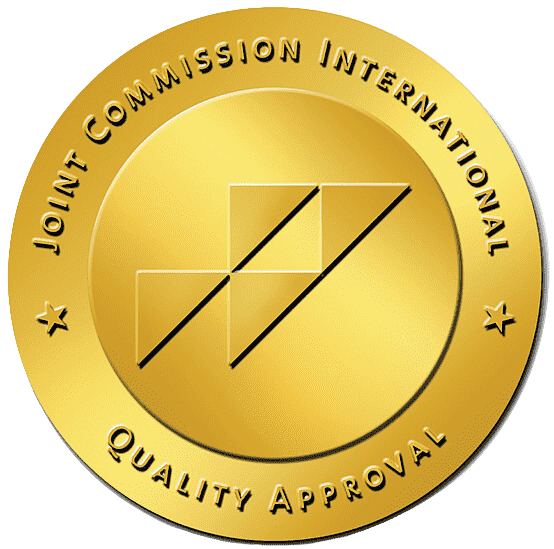The Top 10 Mental Health Tips to Help Your Family Through Recovery
When you or someone you love is diagnosed with a mental illness, one of the first questions you may ask is “now what?” In this article we’ve outlined the Top 10 Mental Health Tips that we have found success with to help you and your loved ones get through the recovery process.
It’s important to get clear on what you and your support group need to do. These tips will help give you the foundation needed to get focused on healing.
Without mental health there is no physical health
Our mental and physical health are closely linked. We’ve all experienced that it’s easier to feel good about yourself if your physical body is feeling great. But have you also noticed that when your mental health starts to wane, more aches, pains, and general tiredness starts to appear in your physical health? This is not a coincidence!
Poor mental health is a known risk factor for developing chronic physical ailments. Even the World Health Organization (WHO) agrees that “there is no health without mental health”.
Our bodies respond to our thoughts, feelings and actions. For example, if we feel stressed or anxious our bodies respond to tell us that something is wrong. In more extreme cases we may even develop high blood-pressure or ulcers. Poor mental health can also weaken our immune system, causing colds or other infections to develop during these difficult times.
Just as you would with your physical health, it’s important to dedicate some time each day to maintaining your mental health. For some great tips on mental health exercises check out this article on Mental Fitness Tips.
You are not alone
An important realization is that you are not alone.
1 out of 5 people have a mental illness, and everyone will be affected by mental illness through family or other loved ones at some point in their lifetime.
Mental illness does not discriminate: it affects people of all ages, cultures, income and education levels. No matter what you feel about your uniqueness, rest assured that there are others who are familiar with your situation and are there to help you.
Recovery is possible
Many people dealing with mental illness do see their symptoms improve, and many recover completely. Recovery is regaining the ability to live, work, learn, and participate in your community.
There are more treatments available than every before, with much higher success rates. Just take a look at the variety of programs offered at the Cottage on Mountain Creek as an example! This means it’s much more likely that you and your health professional will be able to find the right mix of treatment, support, and services to meet your individual needs.
This is not to say recovery is quick and easy! Recovery is a process and each person’s journey will progress differently. It’s important to not get frustrated. Celebrate each victory, no matter how small it seems, and keep focused on your goals.
Make a decision and the path will appear
One of the most difficult decisions you’ll need to make is also one of the most important. You need to make a decision that you want to get better.
This is much more than wishing you were healthy, or hoping your symptoms might improve. A decision leaves no room for misunderstanding. You may not yet know how you’re going to do it, but deciding you want to get better is an important first step on the path to successful recovery. Once that decision is made, you can work with your support personnel to map out your best path, and you’re much more likely to remain focused when progress seems slow and treatment gets difficult.
Poor self-esteem and lack of confidence is normal
Having poor self-esteem issues or lack of confidence is normal when mental health problems first develop. Knowing what to expect can go a long way both for you and for your loved ones.
Knowing these feelings will come, are real, and are normal can help tremendously. Rather than trying to seclude ourselves, as we often look to do in these circumstances, knowing we are not alone supplies that vital beacon of hope.
Help is available for you
No matter your diagnosis or your situation, help is available for you and your loved ones. You may need to search it out, but your health practitioners will be able show you the way.
The advent of the Internet has exploded the availability of helpful information on mental health. It’s actually easier to get lost in the mountain of available data! Try to keep it simple. Work with your support people to filter out the data that’s not relevant to your situation so you can focus on what you need to aid in your recovery.
If you’re looking for a place to get started, check out these great adjunct therapies offered by the Cottages on Mountain Creek.
Don’t feel ashamed
There is no need to feel ashamed because you or someone you love has a mental illness. As we mentioned earlier, 1 out of 5 people has a mental illness, and everyone will be touched by mental illness in their lifetime.
There are many efforts around the world dedicated to breaking down the stigma surrounding mental illness. Here are a few of the groups spearheading this vital work:
– Stamp Out Stigma
– Bell Let’s Talk
– See Me
Take on a problem-solving attitude
Do you best to have a problem-solving attitude toward your mental illness or that of a loved one. Our thoughts control our actions, so focusing your mind on how to solve any problems that may arise will go a long way in helping you along this recovery path.
It’s easy to get caught up in the day-to-day, but make sure you are focused on your goals. A problem-solving attitude is vital in helping you maintain this focus. Any time you find yourself thinking “oh no, now what?”, immediately change your mindset to “ok, no what can I do?”.
Always search for a solution – there’s definitely one out there! Even in the off-chance you can’t find a solution to your situation directly, a true problem-solver will work diligently with their support group and health practitioners to make a new solution that works!
Develop your insight
Nobody wants to admit there’s something wrong with them. It’s very normal to feel attacked or think everyone’s wrong except you. Developing insight into your own mental health is one of the most difficult things you’ll need to overcome.
If you’re working with a loved one, you’ll want to be aware of the 5 Grades of Insight (as defined by Dr Ashish Debsikdar):
1. Complete denial of illness
2. Slight awareness of being sick and needing help, but denying at the same time
3. Awareness of being sick but blaming it on others, external events, medical or other factors
4. Intellectual Insight – Admission of illness and recognition of symptoms, without applying knowledge to future experiences
5. True Emotional Insight – Emotional awareness of the motives and feelings within, and of their underlying meaning
Break up the monotony
Routines are great for our efficiency and enhancing our feelings of security and safety, but a little change here and there can be a great way to break up any feelings of monotony.
Mix up jogs with walks or road trips. Take a different route. Visit a new park. Try a new restaurant.
Each of these small changes will keep you on your recovery path, but add a little spice to your life that may otherwise be lacking. This can go a long way in keeping your spirits up and keeping you focused on attacking your goals.
You are now well-armed with the Top 10 Mental Health Tips to help your family through recovery!
If this was valuable for you, or if you have more great tips to add to this list, we’d love to hear from you in the comments below.






